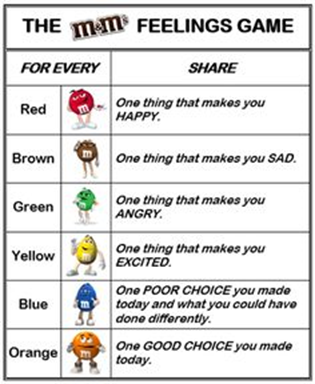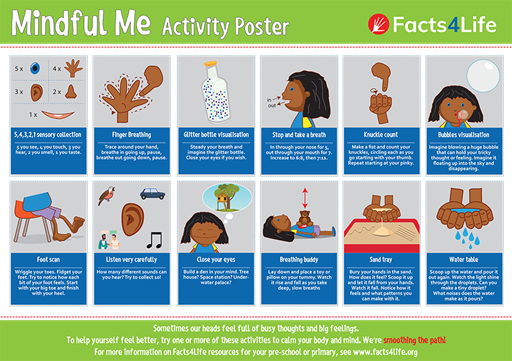Children
Sometimes your feelings and thoughts can seem overwhelming, and you may feel as though you can’t cope. It might be that you are simply having a bad day, or it may be that you have an ongoing mental health problem that you need support for. The important thing is that you don’t try to cope on your own.
If you are feeling low and vulnerable it is not good for you to spend too much time on your own. It’s at times like these that you need to be able to talk to someone. Don’t be afraid to ask for help.
You might not feel comfortable asking for help. You may feel that you are a burden on other people or would upset them. You might worry whether they may not believe you or about what they might think or that they could tell others.
You may even be afraid that people will laugh at you.
The truth is, people who care about you will want to help.
There are many people who you can ask for help:
- your family – parents or carers, siblings, grandparents, aunts, uncles or cousins
- trusted friends – your own friends, or friends of the family, neighbours
- professionals – your GP, a doctor or nurse, a social worker, a teacher
Decide who you would feel most comfortable talking to. Many people feel more able to talk to their friends or family, however, you may choose to talk to professionals, support groups, helplines or online forums.
Choose a quiet time and a place that you feel comfortable in, so you can talk without interruption.
Try to think about what outcome you would like.?Do you simply want someone to listen to you? Would you like strategies and resources to help you help yourself? Or would you like more face-to-face support and therapies? Don’t be worried if you don’t know, but it can be useful to have an idea of what you would like to change or achieve.
Before you speak to anybody make some notes so you can be sure you don’t forget something you want to share.
Try to be open and clear in how you are feeling, this will give the person supporting you the information to make sure you get the right help.
It can be scary and difficult to talk about your feelings, but ‘a problem shared is a problem halved’ and you’ll probably feel better by simply opening up to someone and knowing that help is available.
You are not alone—there are many resources there to help you. The links on these webpages are for organisations and charities who work to support children, young people and their parents through episodes of mental health illness.



Childline
A place a child or young person can talk to someone about something they are worried about. You can do this online or over the phone. 08001111
Prepares young people for their first visit to their GP to talk about their mental health.
Get Connected
Support and signposting for young people under the age of 25. Telephone, email, text and web chat support.
Kooth
Online counselling and support for children and young people.
The Mix
Mental health information and support for the under-25s.
Time to Change
Personal stories from young people about why mental health matters.
The Youth Wellbeing Directory
Online resource for families and young people up to the age of 24 listing local mental health services in their area.
www.annafreud.org/on-my-mind/youth-wellbeing
MeeToo
MeeToo app provides free mental help support to 99% young people in the UK who have a smartphone.
Teenage Helpline
Providing peer to peer mentoring services for young people across the UK.
https://teenagehelpline.org.uk
National Bullying Helpline
If you think someone is bullying, you walk away. If you cannot walk away easily or if the bullying is causing you to feel sad tell someone you trust exactly what is happening. It might help if you write down what happened and how it made you feel. Write down the names of anyone who saw it happen then Tell someone you trust exactly what happened and why you feel sad. If you are worried or frightened, or if the bullying is causing you to feel sad, call our free helpline.
Call Free: 0300 323 0169









